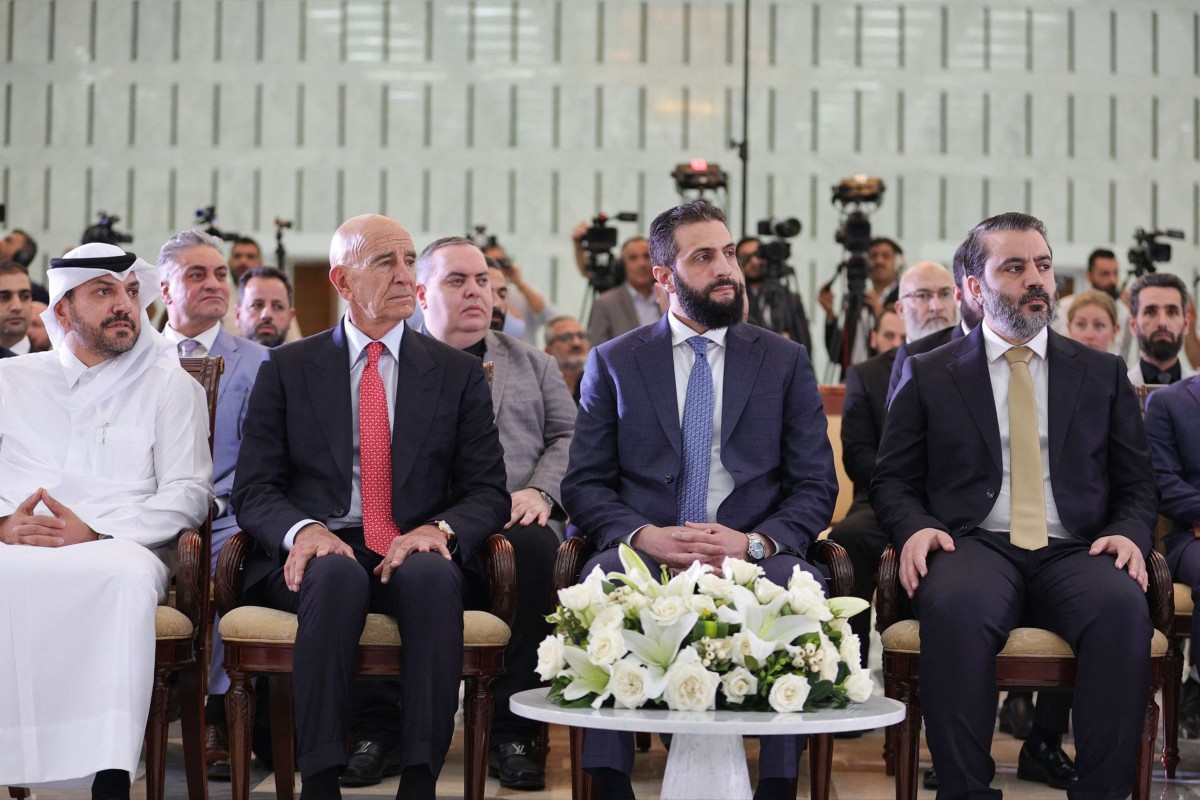Damascus, Syria — Syria signed a $7 billion energy deal on Thursday with a consortium of Qatari, Turkish and US companies as it seeks to revive the war-torn country’s crippled power sector.
The agreement was sealed at the presidential palace in Damascus in the presence of interim President Ahmed al-Sharaa and US ambassador Thomas Barrack. It aims to generate 5,000 megawatts.
Syrian Energy Minister Mohammad al-Bashir called it a “historic moment” and a “turning point” for the country’s shattered infrastructure.
The consortium is led by Qatar’s UCC Concession Investments and includes Turkey’s Kalyon GES Enerji Yatirimlari and Cengiz Enerji, along with Power International USA.
Syria’s 14-year civil war wrecked its power grid, leaving people with up to 20 hours of daily blackouts.
The project includes four gas-powered plants in central and eastern Syria and a 1,000-megawatt solar farm in the south. Bashir said the plants would use US and European technology.
Barrack said US President Donald Trump had lifted sanctions on Syria unconditionally and pledged ongoing support.
Trump, he said, offered Syria his “unceasing commitment” to turn borders “into a tapestry of commerce and cooperation”.
UCC chief executive Ramez al-Khayyat said the deal would create more than 50,000 direct and 250,000 indirect jobs.
Last week, Turkish Energy Minister Alparslan Bayraktar said his country would begin supplying Syria with two billion cubic metres of gas a year — enough to generate 1,300 megawatts.
Syria has ramped up efforts to lure investment after the United States and European Union said they would lift sanctions.
In March, Qatar began funding gas supplies to Syria via Jordan to help ease power shortages.








